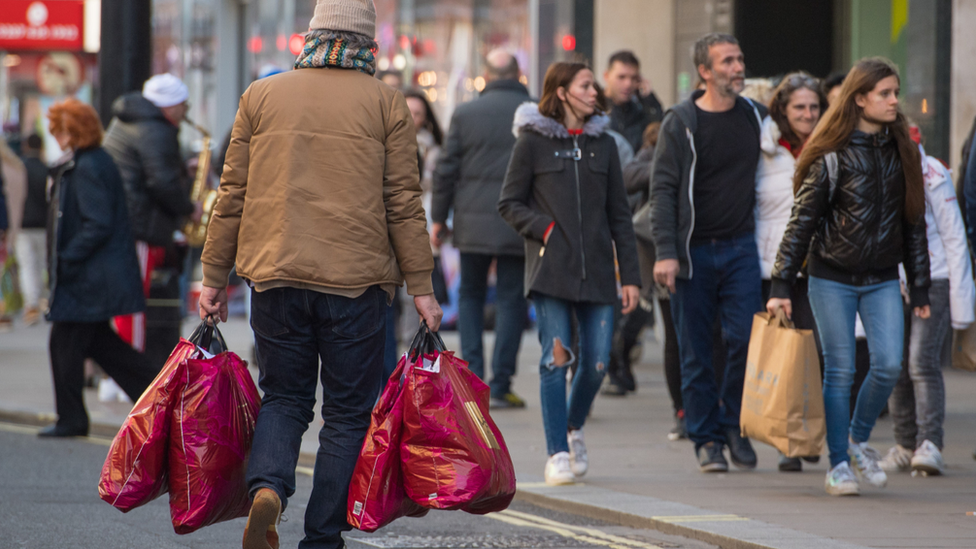New rules ban many single-use plastics in Scotland
- Published
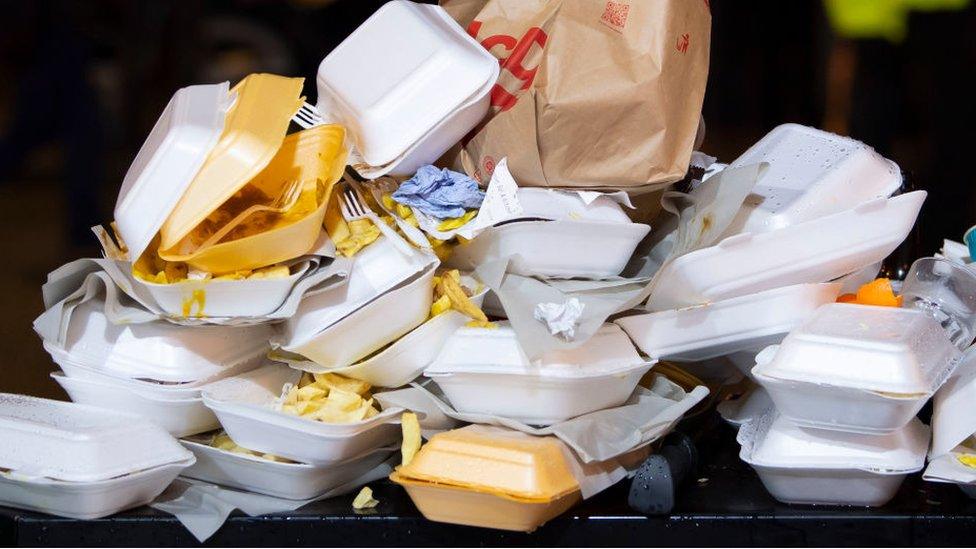
New rules have come into force banning businesses in Scotland from providing single use plastic items such as cutlery, plates and stirrers.
Polystyrene food containers and cups are also covered by the new ban as well as plastic straws and balloon sticks.
The Scottish government said it was the first part of the UK to ban many "problematic" single-use plastics.
It estimated about 700 million of these single-use items are currently used in Scotland every year.
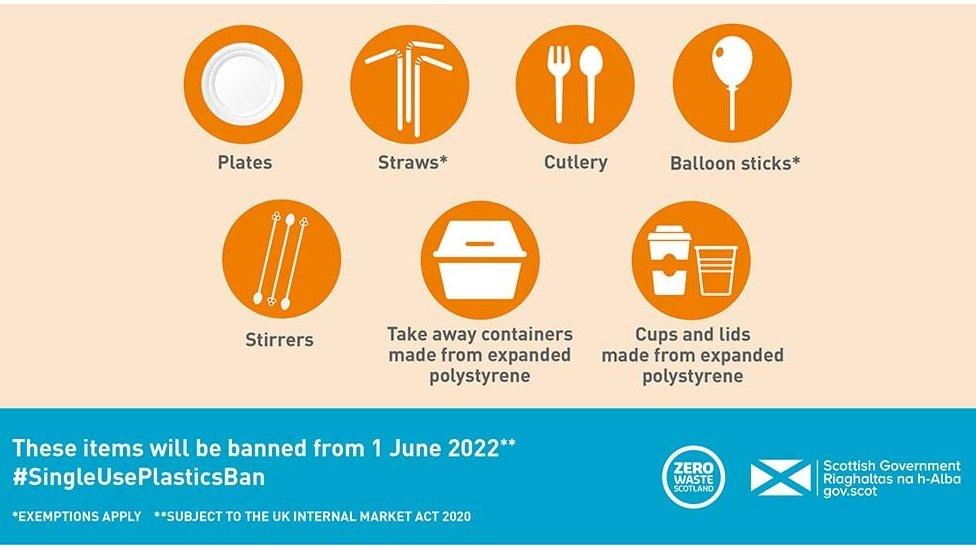
The ban applies to:
plastic cutlery (forks, knives, spoons, chopsticks),
plastic plates
plastic straws
plastic beverage stirrers
plastic balloon sticks;
food containers made of expanded polystyrene;
and cups and other beverage containers made of expanded polystyrene, including their covers and lids.
All the restrictions apply to both online and in-store sales, whether they are free or paid-for.
Enforcement will be the responsibility of local authorities and failure to comply with the regulations carries a maximum fine of £5,000.
The legislation includes exemptions for single-use plastic straws, for those who need them for independent living or medical purposes.
Currently, the regulations will only apply to products manufactured in or imported directly into Scotland from outside the UK.
In theory businesses could still get their plastic products from other parts of the UK due to the Internal Market Act but this will change in the coming months.
The UK government has said it will exclude the products covered by the ban from the Act but the move will take some time to complete its parliamentary progress.
Plans for a similar ban have been announced in England as part of what it calls a "war on plastic".


This will be a disappointing soft launch of the single use plastics ban for Scottish ministers.
It's been years in the planning but is stuck in the bureaucracy of the UK Internal Market Act. That means it can't yet be fully implemented.
But when it finally comes - soon - it will be a significant moment in a journey towards a so-called circular economy.
That's a society where we reuse and recycle rather than throwing away.
We just have to look at carrier bags to see what impact this sort of change can bring.
The 5p charge - now increased to 10p - meant 64 million fewer bags were being used each year.
More single use items are in the sights of ministers including single use coffee cups.
Plans to charge up to 25p per cup were stalled because of the pandemic but have since been revived.

'They don't really give it a second thought'
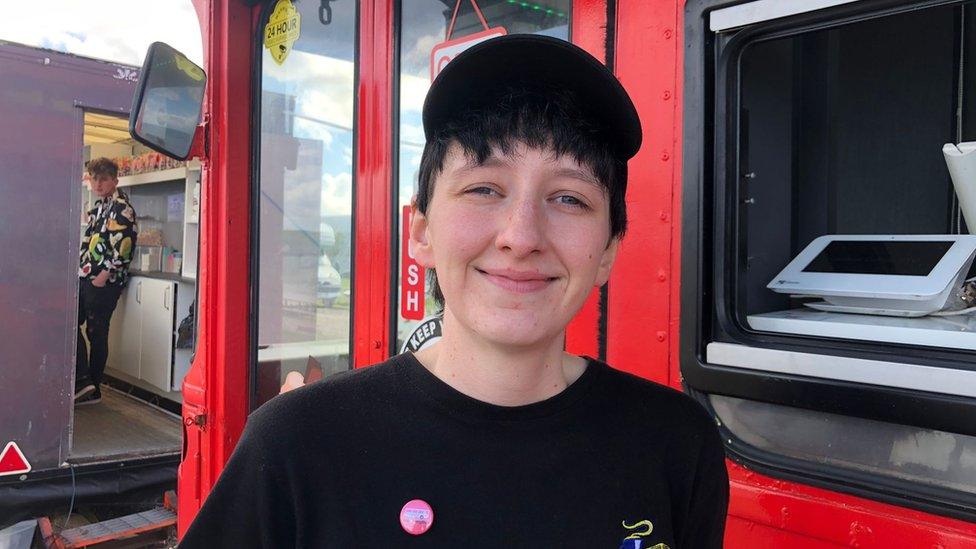
Sarah Brown, who manages the Highlander Café Bus in Aberdeen, says people are used to plastic cutlery
Sarah Brown, who manages the Highlander Café Bus in Aberdeen, told the BBC: "It is really easy right now to get plastic cutlery and the other options are either really expensive or wooden cutlery that people don't necessarily want to eat with.
"I think people are used to plastic cutlery, they don't really give it a second thought as to where it goes after or even where it comes from.
"But we are looking at what would be the best options to use to keep everyone happy."
Sam Coleman, owner of Cairn Coffee on Aberdeen beachfront, said he had always operated without single use plastics.
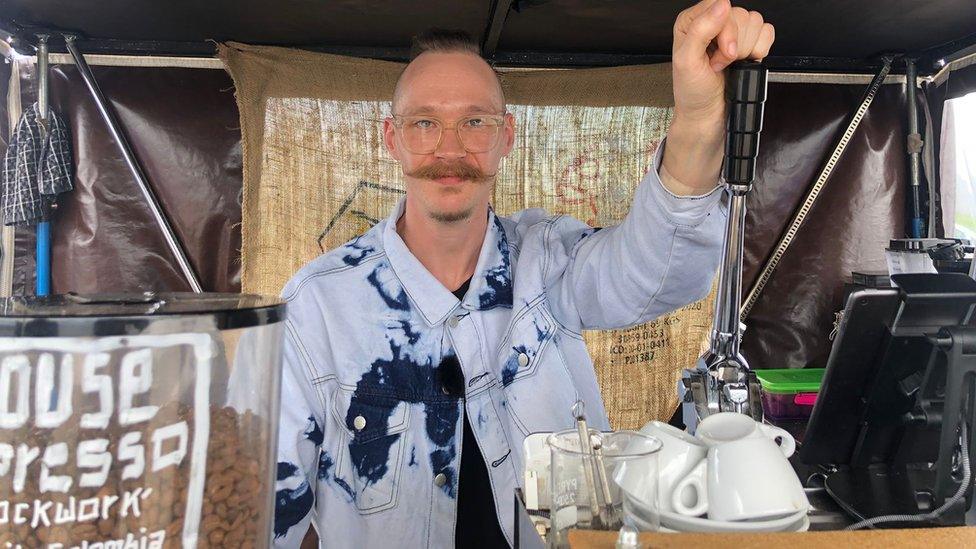
Sam Coleman said he had always operated without single use plastics
"It was never a consideration for us," he said. "It didn't seem right."
Mr Coleman says his packaging is compostable or recyclable.
"The compostable stuff does cost a bit more but I think for the karma it is worth it," he said.
The Scottish government's Circular Economy Minister Lorna Slater said she wanted people to prioritise reusing cutlery over substituting plastic for other materials but the new rules were a "nudge in the right direction".
She said a lot of businesses had already moved to cardboard food containers and alternatives to plastic cutlery.
Ms Slater said banning the most problematic single-use plastic items would reduce Scotland's carbon footprint and the amount of litter generated.
- Published5 November 2021

- Published11 November 2021
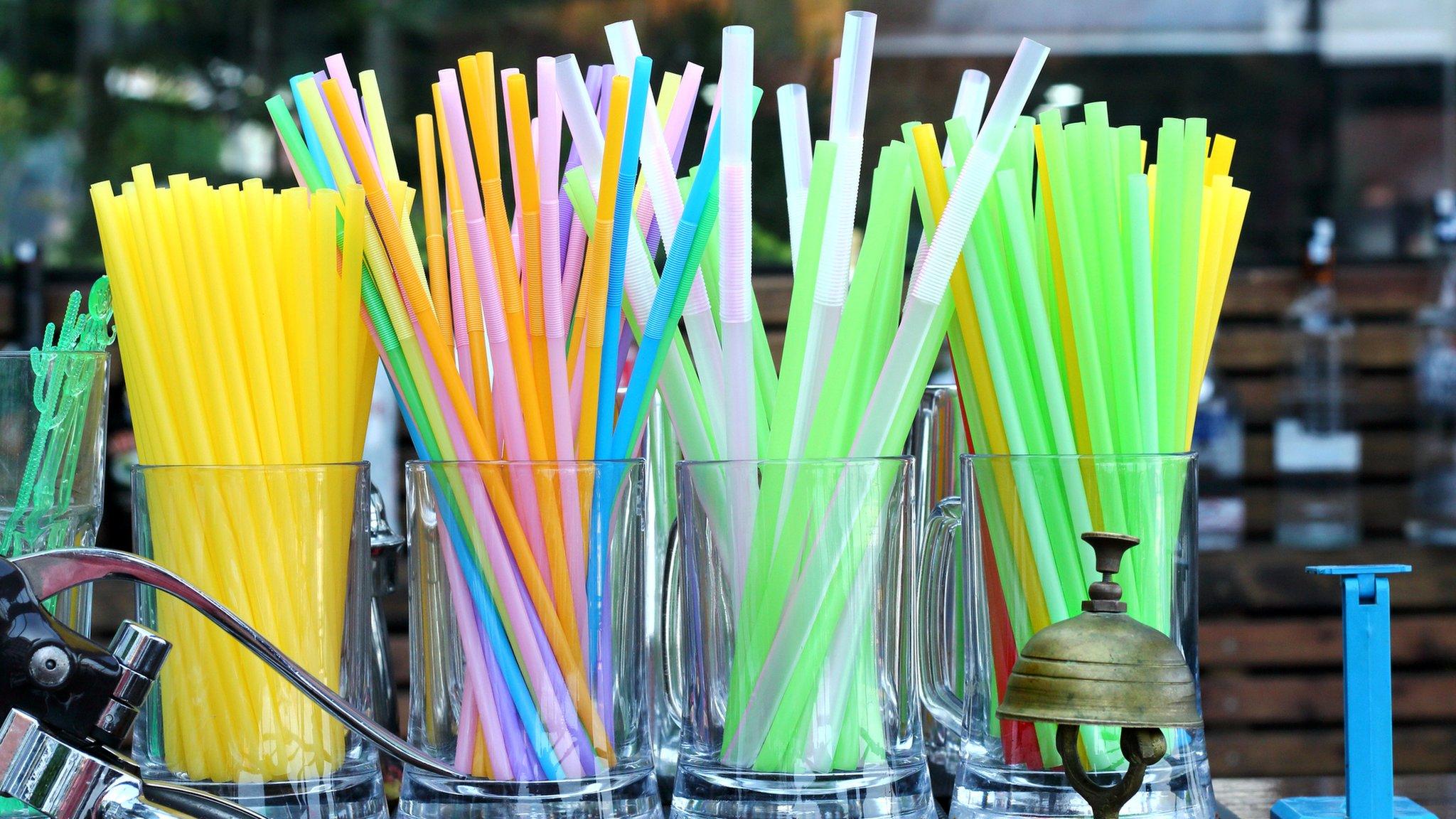
- Published31 March 2022
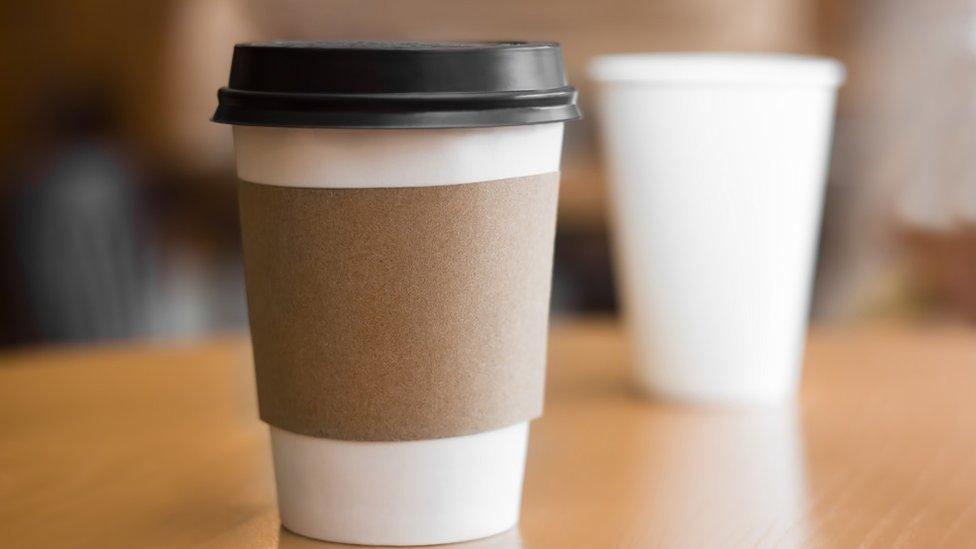
- Published1 April 2021
